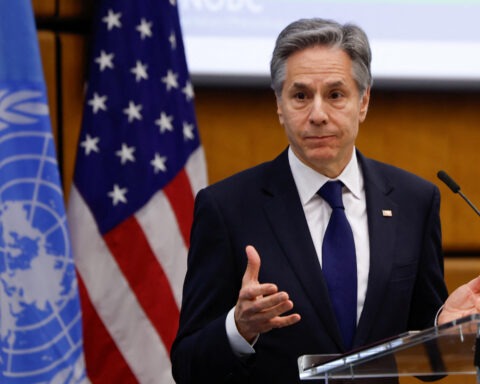Hampig “Harry” Sassounian, an ethnic Armenian immigrant to the United States, was convicted in 1984 for shooting dead Turkish diplomat Kemal Arikan when he had stopped at a traffic light in Los Angeles.
A member of an Armenian militant organization that carried out a string of attacks on Turkish interests across the globe, Sassounian was sentenced to life in prison without parole, but an appeals court later overruled that judgment.

In 2002, prosecutors cut a deal that made Sassounian, who is now 58, eligible for parole in exchange for a declaration renouncing terrorism and admitting guilt.
He had applied for parole on several occasions but was unsuccessful until a judge recently granted it.
A spokeswoman for California Governor Gavin Newsom, who had previously opposed granting parole, told AFP he had decided not to challenge the ruling.
“The governor has carefully weighed the factors in this case and will not pursue an appeal,” the spokeswoman said.
The decision drew a sharp response from the Turkish Foreign Ministry, which has had its diplomats killed in the 1970s and ’80s by Armenian militants seeking revenge for the World War I-era massacre of Armenians in the Ottoman Empire.
“This grave decision, that could not be reversed despite all attempts of the U.S. administration, is in conflict with the universal principles of law and the understanding of justice,” the Foreign Ministry said, adding that 58 Turkish citizens, including 31 diplomats, have lost their lives as a result of attacks carried out by “Armenian terrorist organizations.”
The State Department issued a statement saying it was “deeply disappointed” by the parole decision.
“Attacking a diplomat is not only a grave crime against a particular individual, it is also an attack on diplomacy itself. To ensure the safety of the dedicated U.S. diplomats serving around the world, it has been the long-standing position of the United States to advocate that those who assassinate diplomats receive the maximum sentence possible, and that they serve those sentences without parole or early release,” Secretary of State Antony Blinken said.
During and immediately after World War I, as many as 1.5 million Armenians were killed or deported from Anatolia. Many historians, Armenia, and more than 30 countries consider the killings genocide.
As the successor state to the Ottoman Empire, Turkey objects to the use of the word genocide.
Ankara says that about 500000 Armenians died as a result of civil strife, disease, and starvation rather than a planned Ottoman government effort to annihilate them. Turkey also asserts that hundreds of thousands of Muslims died in Anatolia at the time due to combat, starvation, cold, and disease.






